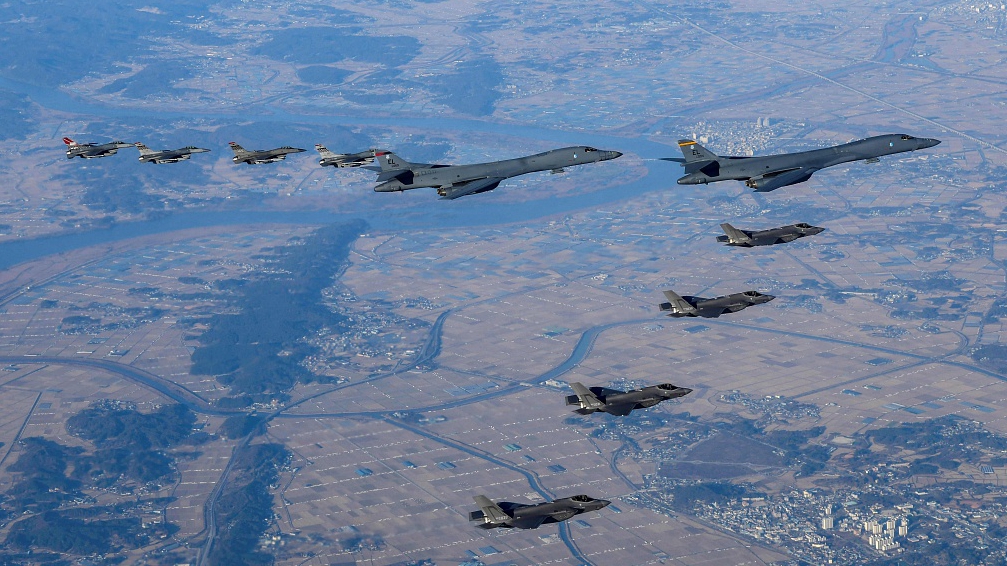
Two U.S. Air Force B-1B heavy bombers (C), four South Korean Air Force F-35 fighter jets and four U.S. Air Force F-16 fighter jets flying over South Korea during a joint air drill in South Korea, November 5, 2022. /CFP
Two U.S. Air Force B-1B heavy bombers (C), four South Korean Air Force F-35 fighter jets and four U.S. Air Force F-16 fighter jets flying over South Korea during a joint air drill in South Korea, November 5, 2022. /CFP
The Democratic People's Republic of Korea (DPRK) fired four short-range ballistic missiles westward, Yonhap reported Saturday, citing the Republic of Korea (ROK) 's Joint Chiefs of Staff.
The missiles fired from a western coastal area around noon flew about 130 km toward the ROK's western sea as the U.S. and the ROK finished the Vigilant Storm joint air drills they began on Monday.
Vigilant Storm exercise had been initially scheduled to end Friday, but the allies decided to extend the training to Saturday in response to a series of DPRK's ballistic launches on Thursday.
The allied exercise involved some 240 military aircraft and two U.S. B-1B strategic bombers, as well as four F-16 and four F-35A fighters, according to South Korea's Joint Chiefs of Staff.
This is the first time the B-1B has been deployed in U.S.-South Korean drills since 2017, showing "the combined defense capabilities and determination of the ROK and the U.S. to resolutely respond to any provocations from the DPRK, and the will of the U.S. to implement a strong commitment to extended deterrence," the joint chiefs said in a statement.
The DPRK Foreign Ministry on Friday demanded the U.S. and South Korea halt "provocative" air exercises and denounces "the irresponsible and reckless acts of the U.S. as a grave encroachment upon the security of a sovereign state and a shameless challenge to the international community's desire for peace and stability in the Korean peninsula and the region."
South Korean officials said it scrambled warplanes after tracking about 180 DPRK military flights near the countries' shared border on Friday.
The U.S. should respond to the legitimate and reasonable concerns of the DPRK to create conditions for the resumption of meaningful dialogue, China's Permanent Representative to the United Nations Zhang Jun said on Friday.
(With input from agencies)